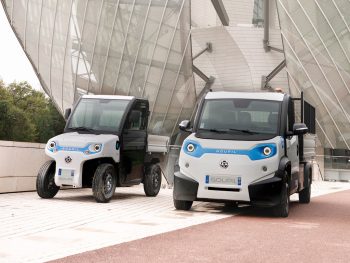Rocketing fuel prices are fast-driving demand for electric utility vehicles as the running costs of traditionally powered vehicles quickly become unsustainable.

Bradshaw Electric Vehicles says it’s been inundated with enquiries from businesses and organisations searching for alternatives to traditionally powered vehicles that “won’t burn a significant hole in their pockets”.
The business has been manufacturing electric vehicles for industry for over 40 years, serving local authorities, manufacturers and warehouses. Its line-up includes the Goupil range, which brings multiple body configurations and can be easily tailored to meet needs.
Ramsy Labassi, marketing manager at Bradshaw, said that demand for its range had already been steadily climbing due to the race to net zero and the 2030 ban, plus the introduction of more Clean Air Zones.
He added: “With the added expenditure of rising fuel costs, which may not subside for some time, the move to electric not only provides potential users with the prospect of improving their environmental footprint, but in turn lowering their vehicle operating costs as well.”
And while businesses have traditionally been held back on going electric due to the perceived lack of range and concerns over charging points and cost, the rise in fuel costs is spotlighting the benefits of going electric far.
Labassi elaborated: “Despite the current rise in electricity costs, recharging an electric utility vehicle still remains more cost-effective than fuelling its petrol or diesel counterpart, offering significant savings for utility vehicle operators over the long term.
“The cheaper price of running electric vehicles may therefore encourage more businesses and organisations to make the switch sooner than originally planned – which is a significant positive as it will simultaneously contribute to cutting emissions and bring the country closer to achieving its net zero target by 2050.”

